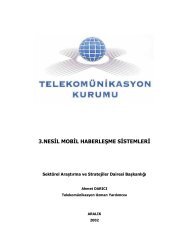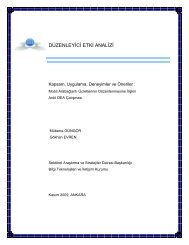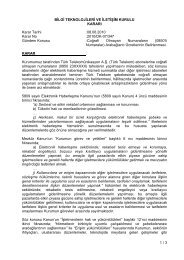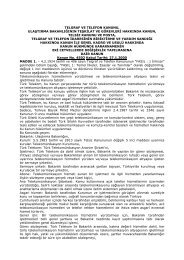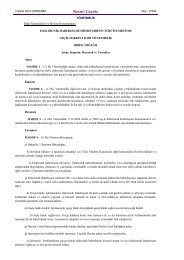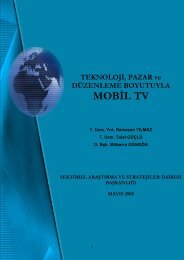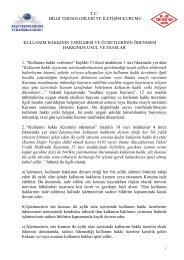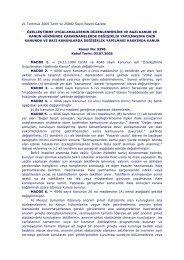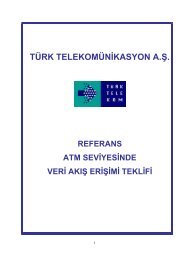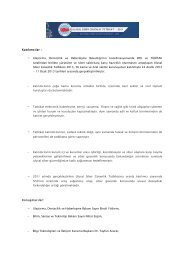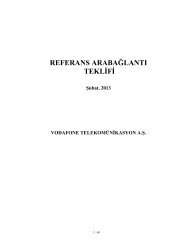city university london school of social sciences convergence of ...
city university london school of social sciences convergence of ...
city university london school of social sciences convergence of ...
You also want an ePaper? Increase the reach of your titles
YUMPU automatically turns print PDFs into web optimized ePapers that Google loves.
cooperation between different subjects is needed for the development <strong>of</strong><strong>convergence</strong>. ITU‟s view on competition rules and ex ante regulation is as follows:„Competition rules should be adapted to the reality <strong>of</strong> this new marketcharacterised by a heavy impact by technology and innovation. It should beparticularly stressed that only the abuse <strong>of</strong> dominant position has to beavoided, and consequently the application <strong>of</strong> an asymmetrical “ex ante”regulation is in principle not justified anymore. The situations should beevaluated on a “case by case” basis, taking also into account that a dominantposition in an adjacent market does not automatically imply an extension <strong>of</strong>this position in the market under evaluation by the competition authority‟(ITU:2002 p.5).ITU proposes three options regarding how to define new regulatory approach. Firstone is to progressively introduce a new regulatory model to cover the whole range <strong>of</strong>existing and new services. Second alternative is to build new framework on currentstructures and the third one is to develop a separate regulatory model for newactivities to co-exist with telecommunication and broadcasting regulation. Accordingto ITU, the first alternative seems the only viable one though it is the most difficult toachieve since the second one leaves in place the current vertical regulatory structureas it is in place in most <strong>of</strong> the developed economies. ITU states that the presentasymmetric approach would be kept in place and the <strong>convergence</strong> market wouldprobably remain too rigid and over-regulated if the second option is adopted. Alsothe third option does not seem to be viable according to ITU since it could lead toconfusion and uncertainty to have different set <strong>of</strong> rules running in parallel.It is highlighted by ITU that the general orientation regarding converged regulatorissue is to move towards one converged regulator such as in the United Kingdomwith the creation <strong>of</strong> OFCOM. ITU predicts that, more countries will establishconverged regulators in charge <strong>of</strong> controlling all communications sectors in the longrun. However ITU draws attention that there are some negative aspects <strong>of</strong>establishment <strong>of</strong> converged regulators besides its positive effects such as provision <strong>of</strong>economies <strong>of</strong> scope and scale, prevention <strong>of</strong> legislative and political disagreementsand inefficiencies stemming from existence <strong>of</strong> different regulatory agencies for eachdifferent sector. According to this, development <strong>of</strong> digital technology or <strong>convergence</strong>27



